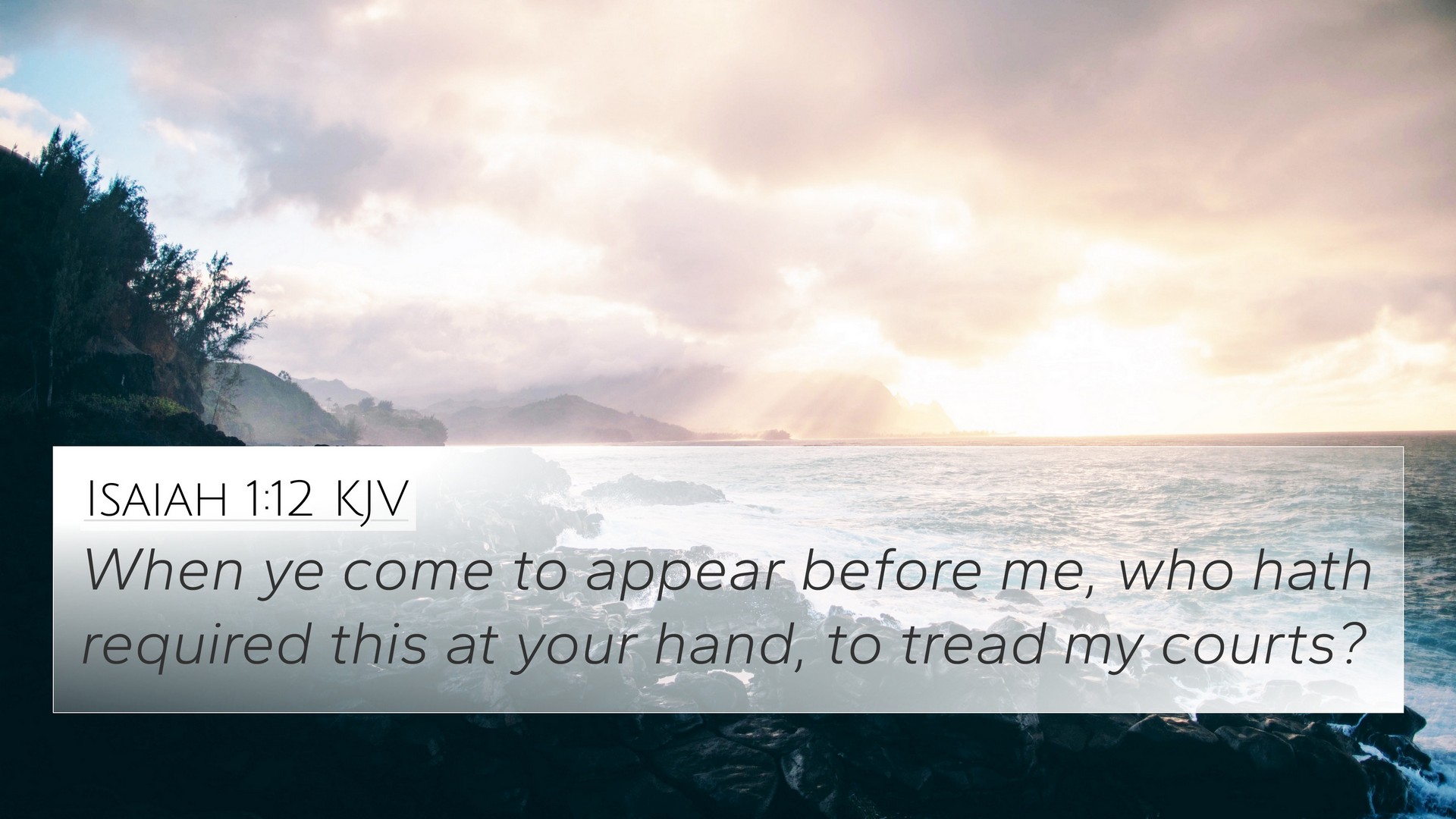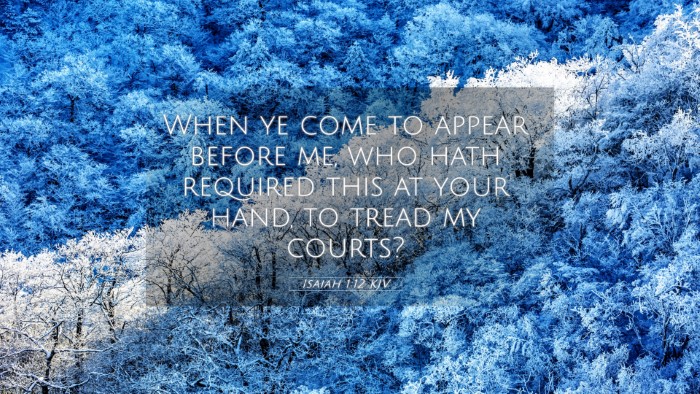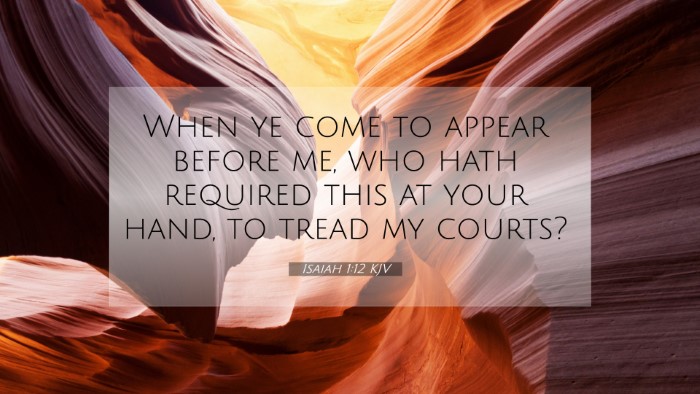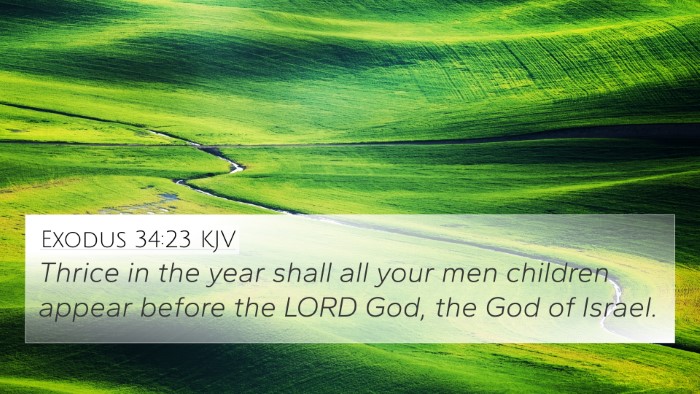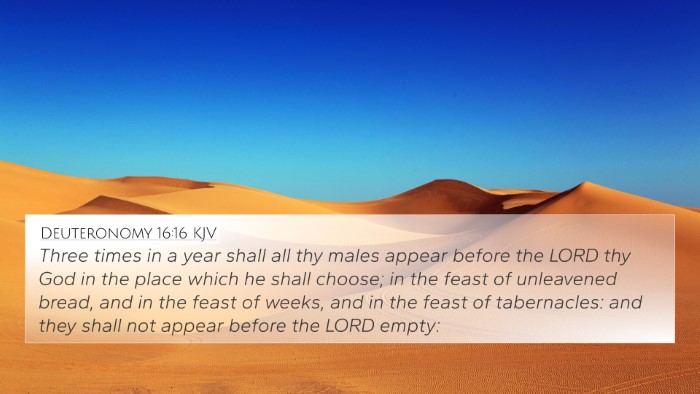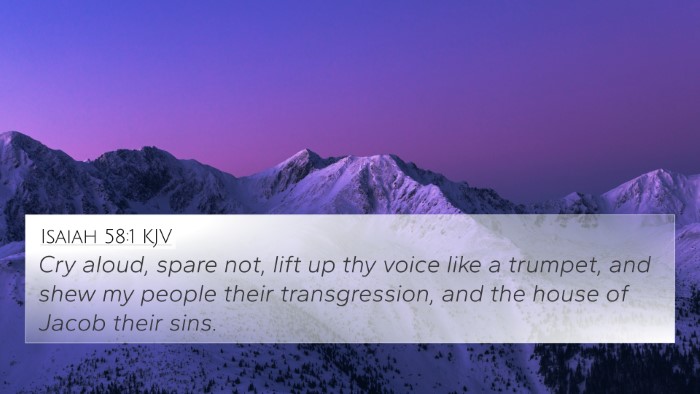Insights on Isaiah 1:12
Isaiah 1:12 states, "When you come to appear before me, who has required this from your hand, to trample my courts?" This verse addresses the issue of ritualistic worship devoid of genuine intention.
Summary of Biblical Meaning
This verse conveys God's critique of the people of Israel for their empty religious practices. The Lord is questioning their motives as they come before Him, emphasizing that mere attendance in His courts is insufficient without true reverence and righteousness.
Commentary Insights
- Matthew Henry: Henry emphasizes the futility of bringing offerings when the heart remains unrepentant. He notes that God desires true worship that springs from the heart, rather than mere compliance with rituals.
- Albert Barnes: Barnes highlights that God does not delight in outward ceremonies but seeks sincerity in worship. He interprets this as a call for a heart transformation, which must accompany any act of worship.
- Adam Clarke: Clarke reflects on the concept of divine displeasure with insincere ritualism. He elaborates on the idea that God intends for worship to be meaningful, stating that external acts devoid of internal devotion are ineffectual.
Thematic Connections
This verse presents a rich opportunity for scriptural cross-referencing. Below are Bible verses that relate to Isaiah 1:12:
- Micah 6:6-8: Questions regarding what God requires of His people, culminating in the call to do justly, love mercy, and walk humbly.
- Amos 5:21-24: God's disapproval of empty rituals, commanding justice to roll down like waters, signifying that true worship must translate into righteous actions.
- Matthew 15:8-9: Jesus quotes Isaiah, stating that the people honor God with their lips, but their hearts are far from Him, echoing Isaiah's sentiments on hollow worship.
- James 1:26-27: Specifies what true religion entails—a personal walk of integrity and care for orphans and widows, emphasizing action alongside faith.
- Romans 12:1: Paul's exhortation to present our bodies as living sacrifices acknowledges that genuine worship involves our everyday lives.
- John 4:24: Jesus explains that true worshipers will worship the Father in spirit and truth, underlining God's desire for sincerity in worship.
- Psalm 51:16-17: David states that God does not desire sacrifices if the heart is not contrite, further reinforcing the theme of sincere worship.
Connections Between Bible Verses
Recall that effective Bible cross-reference guide methods can enhance your understanding of scriptures and their interrelation:
Tools for Bible Cross-Referencing
- Utilize a Bible concordance to locate words and themes across different verses.
- Engage in cross-reference Bible study to explore thematic connections and parallels between passages.
- Consider comprehensive Bible cross-reference materials that compile verses by topic or theme for more in-depth study.
Conclusion
Isaiah 1:12 serves as a poignant reminder that God seeks authenticity over mere ritual. By exploring connections between this verse and others, believers can gain a richer understanding of what the Lord truly desires in worship. This passage encourages us to seek God with our whole hearts, ensuring our spiritual practices are rooted in sincerity and truth.
